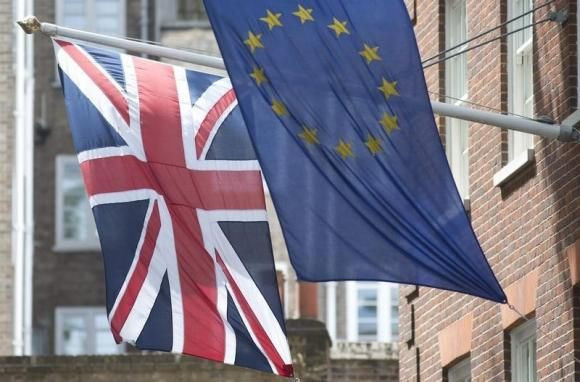British EU Exit Could Hit GDP By 2.2%: Study

(Reuters) - Britain leaving the European Union could result in a permanent loss of 2.2 percent of the country's gross domestic product by 2030, and the costs would not be offset solely by striking a free trade deal with its former partners, think tank Open Europe said.
The prospect of Brexit - Britain breaking away from Brussels - has moved up the political agenda in tandem with a surge in support for anti-EU party UK Independence Party (UKIP) in recent years.
The Conservative Party, which has long contained a wing sceptical about the European Union, has promised an in-or-out referendum on membership before the end of 2017 if they win national elections on May 7 in a move designed to neutralise UKIP's appeal.
UKIP has said it would only support a minority Conservative government if it agreed to hold a referendum before Christmas.
The Labour Party, which is level with the Conservatives in the polls, is committed to Europe, but wants its institutions reformed, while the Liberal Democrats, currently in coalition with the Conservatives, are strong pro-Europeans.
Think tank Open Europe said on Monday that Britain's GDP would suffer if it failed to strike a free trade deal with Europe from outside the EU, and also did not pursue a free trade agenda with the rest of the world. This could result in a drop in GDP of 2.2 percent.
The best case scenario would involve a free trade agreement with Europe, very ambitious deregulation of its economy and open up almost fully to trade with the rest of the world.
That would result in GDP being 1.6 percent higher in 2030 than if the country stayed in the EU, but it would involve exposing British workers to increased competition from low-cost countries.
The most likely outcome was between a 0.8 percent permanent loss to GDP, where the UK strikes a comprehensive trade deal with the EU but does nothing else, and a 0.6 percent gain, where it pursues free trade with the rest of the world and deregulation in addition to a free trade agreement in Europe, it said.
"Transforming Britain into the deregulated, free trading economy it would need to become outside the EU sounds easy in theory, but in practice would come up against some serious political resistance within the UK itself," said Open Europe chairman Rodney Leach, a Conservative lawmaker.
"The worst scenario is if the UK leaves the EU and then pursues protectionist policies."
© Copyright IBTimes 2024. All rights reserved.





















